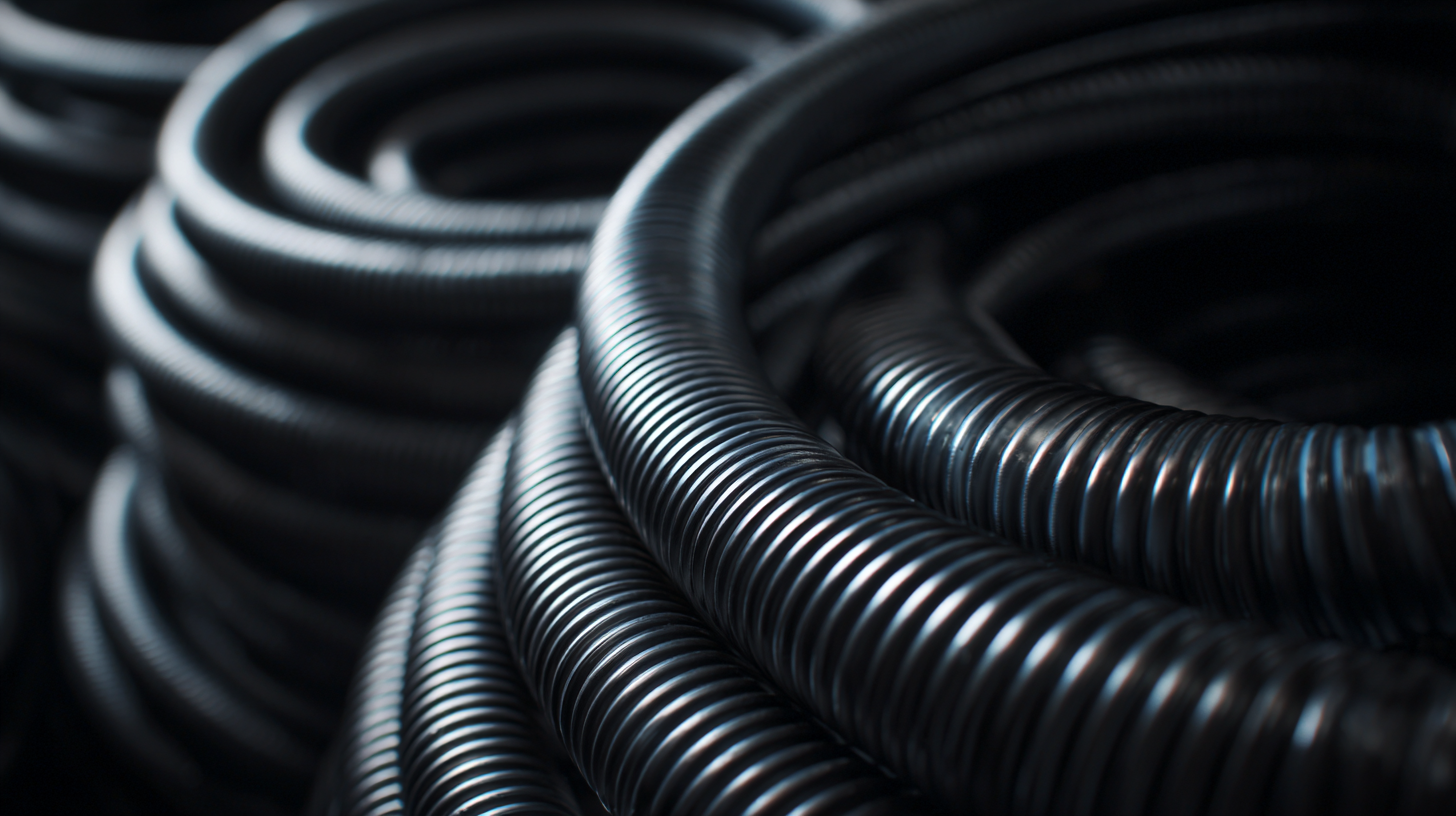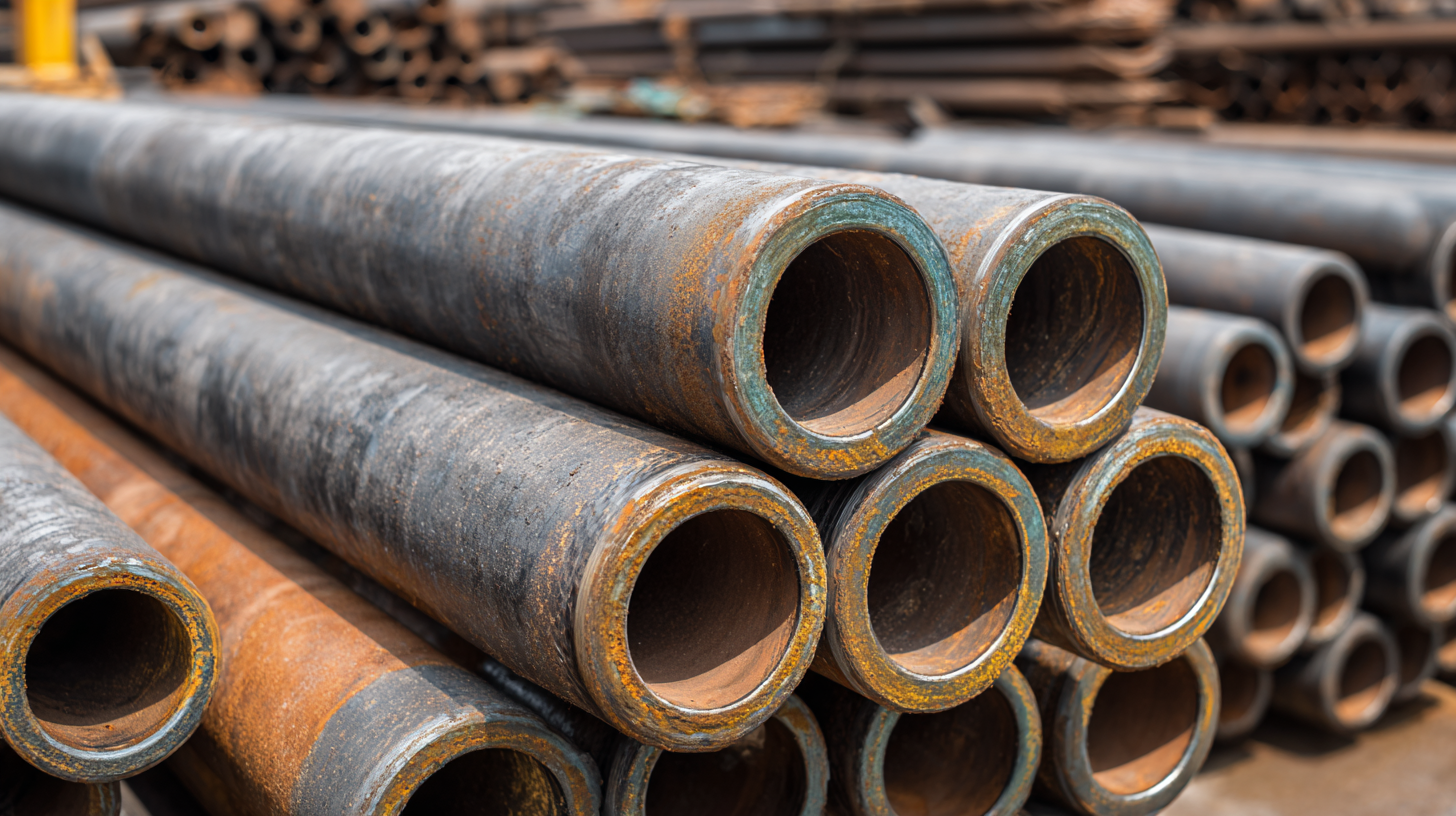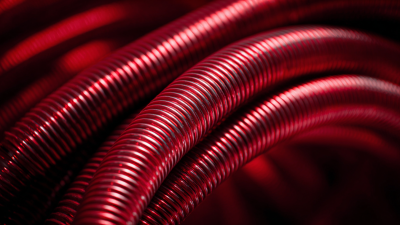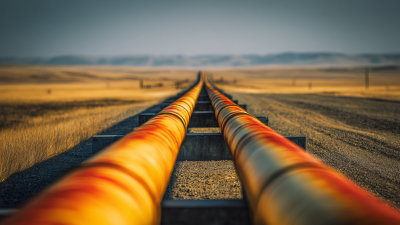Blog 
Understanding the Essential Role of Industrial Hose Manufacturers in Modern Industries
In the intricate landscape of modern industries, the pivotal role of industrial hose manufacturers cannot be overstated. According to a recent market research report by Grand View Research, the global industrial hoses market size was valued at over $10 billion in 2021 and is projected to grow at a compound annual growth rate (CAGR) of 4.5% through 2028. This significant growth underscores the increasing demand for high-performance hoses utilized across sectors such as construction, agriculture, and chemical processing. Industrial hose manufacturers are essential in producing durable and flexible hoses that withstand harsh environments while ensuring safety and efficiency. They not only contribute to the supply chain but also drive innovations in hose technology, making them crucial players in maintaining operational excellence and meeting the evolving needs of diverse applications. As industries seek to enhance productivity and sustainability, the collaboration with industrial hose manufacturers becomes increasingly vital.

Identifying Key Industrial Hose Applications Across Various Sectors
Industrial hoses play a crucial role in various sectors, facilitating the transfer of fluids and gases essential for operational efficiency. In industries like aerospace and transportation, hydraulic hoses are integral to ensuring secure and efficient functioning. For instance, advancements in the aerospace sector highlight the importance of robust hoses that can withstand extreme conditions while maintaining safety and performance standards. The transportation hydraulic hose market is projected to witness significant growth, reflecting the crucial need for reliable hose solutions across diverse applications, including marine and automotive.
Tips for selecting the right industrial hose include considering factors such as material compatibility, pressure ratings, and temperature resistance. Understanding the specific requirements of your application will help ensure optimal performance and longevity of the hose.
In addition to aerospace and transportation, industrial hoses also find applications in sectors like healthcare, where fluid management is vital. As technologies evolve, the demand for specialized hoses continues to grow. Ensuring the safety and reliability of these products is paramount, and companies are focusing on innovative solutions that enhance efficiency across various industries. Selecting the right vendor with proven safety records and industry expertise is essential for maintaining operational integrity.
Understanding the Essential Role of Industrial Hose Manufacturers in Modern Industries - Identifying Key Industrial Hose Applications Across Various Sectors
| Sector | Key Applications | Common Hose Types | Material Used |
|---|---|---|---|
| Construction | Water delivery, concrete pumping | PVC, rubber hoses | PVC, EPDM |
| Agriculture | Irrigation, chemical application | Layflat hoses, chemical resistant hoses | Polyester, polyurethane |
| Manufacturing | Fluid transfer, pneumatic conveying | Steel braided hoses, silicone hoses | Silicone, stainless steel |
| Mining | Slurry transfer, dust suppression | Heavy-duty rubber hoses | NR, SBR |
| Food and Beverage | Food transfer, beverage dispensing | Sanitary hoses, FDA compliant hoses | Rubber, PVC |
Evaluating the Critical Selection Criteria for Industrial Hoses
When selecting industrial hoses, several critical criteria must be evaluated to ensure optimal performance and longevity. First and foremost, compatibility with the materials being transported is essential. For instance, hoses must be constructed from materials that can withstand specific chemicals, temperatures, and pressures. Understanding the nature of the media—whether it’s liquid, gas, or particulate—will significantly influence this choice. Additionally, considerations regarding abrasion resistance, flexibility, and temperature limits are paramount, especially in industries such as manufacturing, construction, and oil and gas.
Another vital selection criterion involves the hose's size and configuration. Proper diameter and length are necessary to maintain flow rates while minimizing pressure drops. Users should also consider the hose fittings and connectors, which must be tailored to the specific application to prevent leaks and ensure safe operation. Furthermore, compliance with industry standards and regulations cannot be overlooked, as this ensures not just safety and reliability but also builds trust in operational integrity. Ultimately, a well-informed selection process will lead to enhanced efficiency and reduced downtime in any industrial setting.
Understanding the Essential Role of Industrial Hose Manufacturers in Modern Industries
This chart illustrates the demand for industrial hoses across various industries. Each industry's requirement emphasizes the crucial role industrial hose manufacturers play in modern applications, ensuring efficiency and safety in operations.
Understanding the Manufacturing Processes of High-Quality Industrial Hoses
Industrial hoses are crucial components in a variety of sectors, from agriculture to manufacturing. The manufacturing processes of high-quality industrial hoses require precision and technological expertise.
Initially, manufacturers select appropriate materials, such as rubber, thermoplastics, or composite substances, ensuring they can withstand the extreme conditions such as high pressure, temperature fluctuations, and chemical exposure. This selection is vital, as it directly affects durability and performance.
Once the materials are chosen, advanced techniques like extrusion and braiding are employed to create hoses that meet specific industry standards. Extrusion involves forcing the selected material through a shaped die, resulting in a continuous length of hose tailored to required dimensions. Braiding, on the other hand, is used to enhance strength and flexibility, integrating multiple strands of fiber around the core of the hose.
Quality control throughout the manufacturing process, including rigorous testing for pressure resistance and material integrity, ensures that the final products not only adhere to industry regulations but also meet the high-performance demands of modern industries.
Exploring the Importance of Compliance and Safety Standards in Hose Production
In the realm of modern industries, the significance of compliance and safety standards in hose production cannot be overstated. Industrial hoses are critical components in various sectors, including oil and gas, food processing, and chemical manufacturing. According to a report by the Industrial Hose Association, nearly 30% of operational failures can be attributed to inadequate compliance with these standards. Such failures not only lead to costly downtime but can also pose serious safety risks to personnel and the environment.

Implementing stringent safety and compliance measures is essential for manufacturers to deliver high-quality products that meet industry regulations. Regular testing and certification, such as those outlined by the American National Standards Institute (ANSI) and the International Organization for Standardization (ISO), ensure that hoses can withstand the demands of their intended applications. By adhering to these standards, manufacturers significantly reduce the likelihood of catastrophic failures, ensuring safer work environments and improved operational efficiency.
Tips: Always verify that your hose suppliers provide certifications that confirm their products meet applicable safety standards. Regularly train your staff on the importance of using compliant hoses and conduct routine checks to identify potential hazards. Additionally, keep abreast of any changes in regulations to guarantee ongoing compliance in your operations.
Assessing the Impact of Innovative Technologies on Hose Manufacturing Efficiency
The impact of innovative technologies on hose manufacturing efficiency is becoming increasingly significant as industries evolve. Advanced manufacturing techniques, such as automation and robotics, streamline production processes, reduce human error, and enhance the precision of hose components. By integrating smart manufacturing systems, industrial hose manufacturers can optimize their operations, allowing for quicker response times to market demands and reduced production costs.

Moreover, the adoption of materials science innovations plays a crucial role in improving the durability and performance of industrial hoses. Engineers are leveraging new polymers and composite materials, which not only enhance resistance to temperature and chemical exposure but also contribute to lighter and more flexible hose designs. This technological advancement not only meets the specific requirements of various applications but also extends the lifecycle of hoses, resulting in substantial cost savings for manufacturers and end-users alike.



